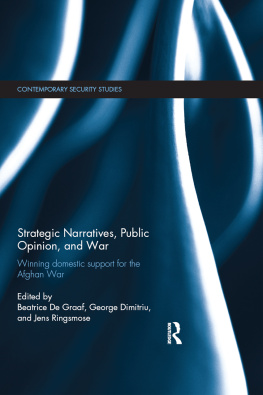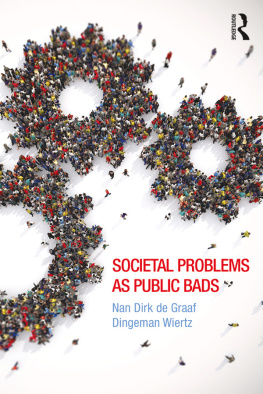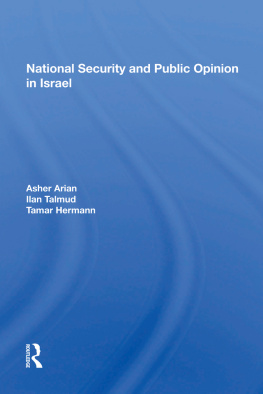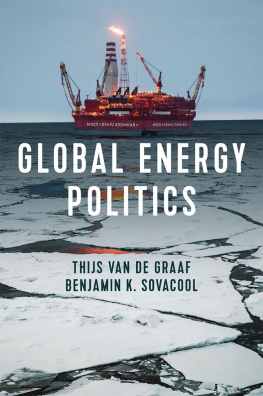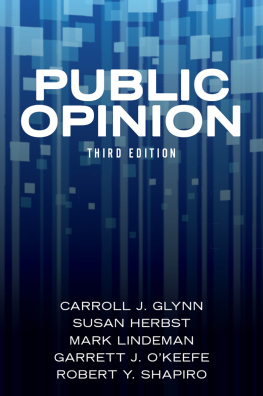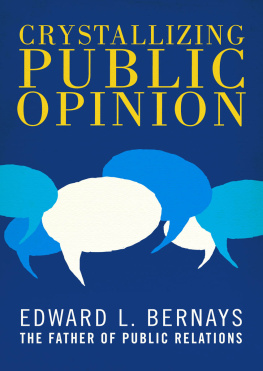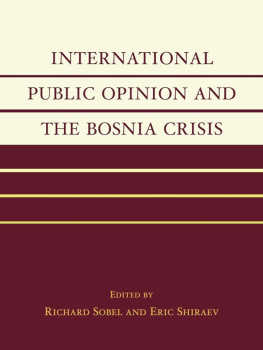This volume is a must read to understand twenty-first century conflict. In todays supercharged world of social networks, instantaneous communications, and suddenly constructed narratives, national leaders must bring their publics along. The long, dificult, and still unfinished NATO campaign in Afghanistan offers many lessons both good and bad for how to approach to aspect of creating security in a highly complex world.
Admiral James Stavridis
Supreme Allied Commander at NATO 20092013 and Dean of the Fletcher School of Law and Diplomacy at Tufts University, USA
How states explain their participation in conflict is not a passive reflection of a policy position, but actively shapes the scope of the conflict itself, and frames how actions are understood by the enemy, ones own side, and other audiences. So strategic narrative matters. This admirable book, focused primarily on strategic narrative and domestic audiences, serves as a guide for policy-makers and students of contemporary conflict.
Emile Simpson, author of War from The Ground Up: Twenty-First-Century Combat as Politics
How do Western governments persuade their publics of the necessity for fighting wars of choice? This fascinating volume explores the importance and effectiveness of different national strategic narratives for the war in Afghanistan and, in so doing, explains why some western states were more successful than others in sustaining public support for this long and costly war.
Professor Theo Farrell
Head of War Studies, Kings College London, UK
Strategic Narratives, Public Opinion, and War
This volume explores the way governments endeavored to build and maintain public support for the war in Afghanistan, combining new insights on the effects of strategic narratives with an exhaustive series of case studies.
In contemporary wars, with public opinion impacting heavily on outcomes, strategic narratives provide a grid for interpreting the why, what, and how of the conflict. This book asks how public support for the deployment of military troops to Afghanistan was garnered, sustained, or lost in 13 contributing nations. Public attitudes in the U.S., Canada, Australia, and Europe toward the use of military force were greatly shaped by the cohesiveness and content of the strategic narratives employed by national policy-makers. Assessing the ability of countries to craft a successful strategic narrative, the book addresses the following key areas: (1) how governments employ strategic narratives to gain public support; (2) how strategic narratives develop during the course of the conflict; (3) how these narratives are disseminated, framed, and perceived through various media outlets; (4) how domestic audiences respond to strategic narratives; (5) how this interplay is conditioned both by events on the ground, in Afghanistan, and by structural elements of the domestic political systems.
This book will be of much interest to students of international intervention, foreign policy, political communication, international security, strategic studies, and IR in general.
Beatrice De Graaf is professor of History of International Relations and Global Governance at Utrecht University, the Netherlands.
George Dimitriu is a Research Fellow at the Netherlands Defense Academy.
Jens Ringsmose is associate professor at the Center for War Studies, University of Southern Denmark.
Contemporary Security Studies
Series editors: James Gow and Rachel Kerr
Kings College London
This series focuses on new research across the spectrum of international peace and security, in an era where each year throws up multiple examples of conflicts that present new security challenges in the world around them.
NATOs Secret Armies
Operation Gladio and terrorism in Western Europe
Daniele Ganser
The U.S., NATO and Military Burden-sharing
Peter Kent Forster and Stephen J. Cimbala
Russian Governance in the Twenty-First Century
Geo-strategy, geopolitics and governance
Irina Isakova
The Foreign Office and Finland 19381940
Diplomatic sideshow
Craig Gerrard
Rethinking the Nature of War
Edited by Isabelle Duyvesteyn and Jan Angstrom
Perception and Reality in the Modern Yugoslav Conflict
Myth, falsehood and deceit 19911995
Brendan OShea
The Political Economy of Peacebuilding in Post-Dayton Bosnia
Tim Donais
The Distracted Eagle
The rift between America and Old Europe
Peter H. Merkl
The Iraq War
European perspectives on politics, strategy and operations
Edited by Jan Hallenberg and Hkan Karlsson
Strategic Contest
Weapons proliferation and war in the Greater Middle East
Richard L. Russell
Propaganda, the Press and Conflict
The Gulf War and Kosovo
David R. Willcox
Missile Defence
International, regional and national implications
Edited by Bertel Heurlin and Sten Rynning
Globalising Justice for Mass Atrocities
A revolution in accountability
Chandra Lekha Sriram
Ethnic Conflict and Terrorism
The origins and dynamics of civil wars
Joseph L. Soeters
Globalisation and the Future of Terrorism
Patterns and predictions
Brynjar Lia
Nuclear Weapons and Strategy
The evolution of American nuclear policy
Stephen J. Cimbala
Nasser and the Missile Age in the Middle East
Owen L. Sirrs
War as Risk Management
Strategy and conflict in an age of globalised risks
Yee-Kuang Heng
Military Nanotechnology
Potential applications and preventive arms control
Jurgen Altmann
NATO and Weapons of Mass Destruction
Regional alliance, global threats
Eric R. Terzuolo
Europeanisation of National Security Identity
The EU and the changing security identities of the Nordic states
Pernille Rieker
Conflict Prevention and Peacebuilding in Post-War Societies
Sustaining the peace
Edited by T. David Mason and James D. Meernik
Controlling the Weapons of War
Politics, persuasion, and the prohibition of inhumanity
Brian Rappert
Changing Transatlantic Security Relations
Do the US, the EU and Russia form a new strategic triangle?
Edited by Jan Hallenberg and Hkan Karlsson
Theoretical Roots of US Foreign Policy
Machiavelli and American unilateralism
Thomas M. Kane
Corporate Soldiers and International Security
The rise of private military companies
Christopher Kinsey
Transforming European Militaries
Coalition operations and the technology gap
Gordon Adams and Guy Ben-Ari
Globalization and Conflict
National security in a new strategic era
Edited by Robert G. Patman
Military Forces in 21st Century Peace Operations
No job for a soldier?
James V. Arbuckle
The Political Road to War with Iraq
Bush, 9/11 and the drive to overthrow Saddam
Nick Ritchie and Paul Rogers
Bosnian Security after Dayton
New perspectives
Edited by Michael A. Innes
Kennedy, Johnson and NATO
Britain, America and the dynamics of alliance, 196268
Andrew Priest
Small Arms and Security
New emerging international norms
Denise Garcia
The United States and Europe

